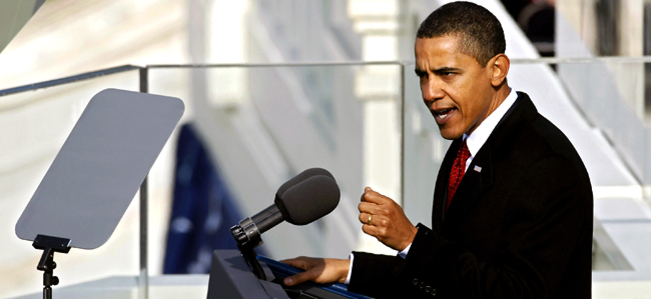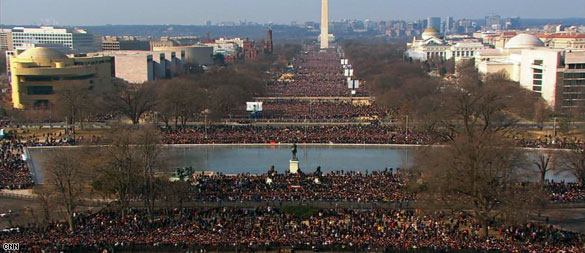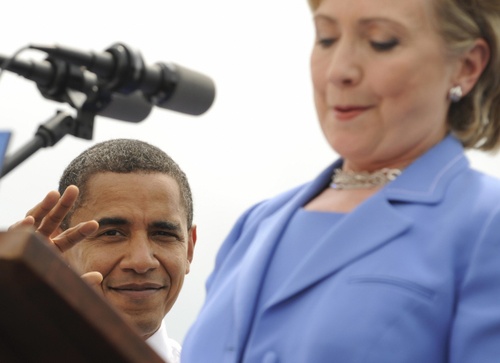“‘There will be people in districts all over the country that will wonder why, when there’s a good bill to get the economy moving again, we still seem to be playing political gotcha,’ White House press secretary Robert Gibbs said in an interview.” Well, so much for the post-partisan era. Despite several attempts at across-the-aisle diplomacy by the new administration, the House passes President Obama’s stimulus bill 244-188 without a single Republican vote. Sigh.
Perhaps a little history lesson is in order. Journey with me, if you will, back to 1993, the last time a new Democratic president tried to work with this same crew of jokers on a new, recession-busting economic plan. As you may remember, Clinton’s 1993 budget also passed the House and Senate without a single GOP vote. Let’s see what the Republicans had to say back then (courtesy of some old, off-line research of mine):
Dick Armey (who, btw, made an embarrassment of himself on national television last night): “This bill would grow the Government…shrink the economy” and “will mean fewer jobs for ordinary Americans.” [Congressional Record, 8/5/93]
Newt Gingrich: The bill will “kill jobs and lead to a recession” that would “force people off of work and onto unemployment and will actually increase the deficit.” [Houston Chronicle, 8/7/93, 1993; AJC, 8/6/93]
Bob Dole: The bill “would take America in the wrong direction.” [WP, 8/4/93]
Ronald Reagan (yes, they wheeled him out with talking points): The bill will “only cause the deficit to increase and will likely wreck any hopes for economic recovery.” [“Just Say No to Clinton’s Package,” NYT op-ed, 8/3/93]
Rush Limbaugh: True to form, the GOP’s poster boy bet the DNC $1 million on the air that three of the following five things would happen by 1996: 1. The deficit would grow. 2. Unemployment would rise. 3. Inflation would swell. 4. Interest rates would surge. 5. The President’s approval rating would fall below 45 percent. [ James McTague, “Off to the Races,” Barron’s, 3/18/96]
Well, I’m sure I don’t need to remind you of the untold economic devastation that was the remainder of the Clinton years. (If you’re keeping score, Rush went 0-for-5, and never paid up.) As it turns out, just as with Boehner this time around, the GOP had decided beforehand they weren’t going to vote for any Clinton bill. As Bob Woodward notes in The Agenda (p. 109), Dole told Clinton this three weeks before the bill was even proposed.
Then as now, the modern Republican party doesn’t seem to understand the first thing about basic economics (their right-wing dogma precludes any grasp of Keynesianism, I guess.) They don’t seem to “get” rudimentary American history. (I’ve seen so many dumb things written about Herbert Hoover and the 1937 “Roosevelt recession” — which was caused by spending cuts and fiscal retrenchment by the FDR admininstration, not “over-regulation” — by right-wingers of late that it’s hard to even know where to begin.)They don’t seem to understand basic politics. (The American people have obviously voted for action, and a path away from Dubyanomics. Getting in the way of this bill won’t “reboot” their party in any way, shape, or form.) At this point, it’s an open question whether they can distinguish their asses from their elbows.
So…can we please stop spoon-feeding these guys now? The GOP has proven yet again that they’re not looking to play ball. If they want to be on the wrong side of the problem as usual, let them. It’s useless to spend any more time bending over backwards to accommodate their lousy, discredited ideas and inchoate, faith-based economic beliefs. It’s time to move on.




